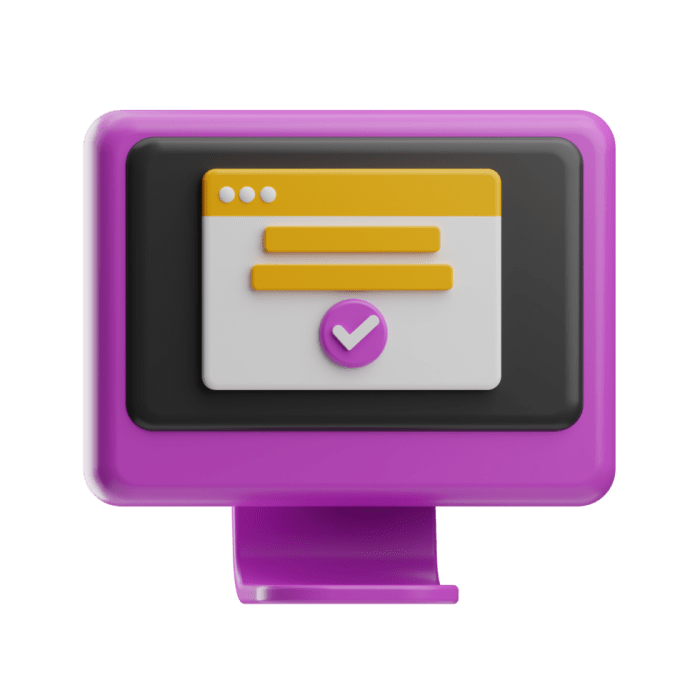
Online sales training platforms have revolutionized the way businesses equip their teams with essential selling skills. As companies increasingly turn to digital solutions, these platforms offer an engaging and flexible approach to sales training, catering to diverse learning styles and schedules.
In this discussion, we will explore the unique features that set online training apart from traditional methods, the innovations that drive business success, and how companies can effectively adapt their training for a global marketplace.
Overview of Online Sales Training Platforms
Online sales training platforms have become essential tools for modern businesses looking to enhance their sales capabilities and streamline their training processes. These platforms offer a flexible and accessible way for sales teams to develop their skills, adapt to new market trends, and ultimately drive sales performance. With the rise of remote work and the increasing need for continuous learning, the importance of these platforms cannot be overstated.Key features that differentiate online sales training platforms from traditional training methods include interactive content, real-time analytics, and multimedia resources.
Unlike conventional classroom training, online platforms allow for self-paced learning, enabling sales professionals to revisit materials as needed. Furthermore, the integration of technology allows trainers to track progress, assess skills, and tailor training programs to meet individual and organizational needs. Some of the most popular online sales training platforms currently available include SalesHood, Brainshark, and MindTickle, each offering unique tools and resources to elevate sales training.
Business Innovation in Online Training
Online sales training platforms are instrumental in fostering business innovation by allowing organizations to adapt quickly to changing market dynamics. By leveraging technology, businesses can create engaging training experiences that resonate with modern learners. These platforms often incorporate gamification, mobile access, and social learning features, leading to higher engagement rates among sales teams.Leading companies are utilizing innovative sales training methods such as virtual reality (VR) simulations and interactive video scenarios.
For example, organizations like IBM have adopted VR training to prepare their sales teams for real-world interactions, enabling them to practice and refine their skills in a risk-free environment. This not only enhances learning but also boosts confidence among sales representatives.
International Business and Sales Training
Sales training approaches can vary significantly across different countries due to cultural differences. In some regions, relationship-building is paramount, while in others, a more direct sales approach may be favored. Understanding these cultural nuances is essential for businesses operating in global markets.To adapt training effectively, organizations should consider local customs, communication styles, and consumer behaviors. For instance, sales techniques that emphasize trust and personal connections may work well in countries like Japan, whereas in the United States, a straightforward and analytical approach might be more effective.
Customizing training programs to fit these cultural contexts will help businesses succeed in international markets.
Business Interviews and Sales Roles
Preparing candidates for sales interviews requires a structured training program that emphasizes both product knowledge and soft skills. Candidates must be well-versed in the company’s offerings and be able to convey their value effectively.Common questions in sales job interviews often revolve around overcoming objections, closing techniques, and relationship management. Effective response strategies involve not only showcasing past experiences but also demonstrating problem-solving abilities and adaptability.
Role-playing exercises can be particularly beneficial in interview preparation, allowing candidates to practice their responses in realistic scenarios.
Job Search Techniques for Sales Professionals
For sales professionals, effective job search techniques are crucial in a competitive market. Networking, personal branding, and leveraging online platforms are essential strategies for finding the right opportunities.Tools such as LinkedIn and industry-specific job boards can significantly enhance a sales professional’s job search efforts. Success stories of individuals who secured positions through innovative methods, such as utilizing social media for outreach or participating in industry events, highlight the effectiveness of these techniques.
Business Management and Sales Training Integration
Integrating sales training into broader business management practices leads to improved performance and alignment across teams. By fostering a culture of continuous learning, businesses can enhance their overall effectiveness.Tracking the effectiveness of sales training can be achieved through various methods, such as sales performance metrics, employee feedback, and ongoing assessments. Key metrics to evaluate post-training include sales growth, customer satisfaction scores, and employee retention rates, which provide insight into the training’s impact on business outcomes.
Marketing Direct and Sales Training Alignment

The relationship between direct marketing strategies and sales training is crucial for maximizing sales effectiveness. A solid understanding of marketing principles empowers sales teams to tailor their approaches and engage customers more effectively.Sales teams benefit from insights into customer behavior, competitive analysis, and market trends, which can be integrated into training curricula. Case studies of companies that have successfully aligned marketing and sales efforts demonstrate the potential for increased revenue and customer loyalty through collaboration.
Business Networking and Sales Opportunities
Networking plays a vital role in the success of sales professionals. Building relationships within the industry can lead to new leads, partnerships, and insights into market trends.Tips for effective networking in a digital environment include leveraging social media platforms for connection, participating in online webinars, and joining professional organizations. Events such as trade shows and conferences provide opportunities for face-to-face interaction, fostering valuable connections for sales training participants.
Business Outsourcing in Sales Training
Outsourcing sales training can offer significant benefits, including access to expertise and cost savings. However, businesses must also navigate challenges such as ensuring quality and alignment with corporate culture.Companies like Salesforce have successfully outsourced their training programs to enhance their training capabilities while focusing on core business objectives. Best practices for selecting an outsourcing partner include evaluating their experience, understanding their training methodology, and ensuring alignment with organizational goals.
Business Presentation Skills for Sales
Essential presentation skills are critical for sales professionals to effectively convey their messages and engage their audience. A well-structured presentation that incorporates storytelling can significantly enhance the impact of sales pitches.Key components of a successful sales presentation include understanding the audience, clearly articulating value propositions, and addressing potential objections. A checklist for preparing and delivering effective sales presentations should encompass elements such as visual aids, rehearsal, and audience interaction techniques.
Enhancing Business Productivity through Sales Training
Sales training can lead to increased productivity by equipping teams with the skills and knowledge necessary to perform at their best. Effective training programs focus on practical applications and real-world scenarios that translate into improved sales results.Best practices for measuring productivity improvements post-training include tracking sales conversions, monitoring customer engagement levels, and analyzing time spent on sales activities. Techniques for maintaining high productivity levels among sales staff involve setting clear goals, providing ongoing support, and fostering a motivating environment.
Restaurant Industry Sales Training
The restaurant industry has unique sales training needs that require tailored strategies. Training staff to upsell effectively can significantly boost revenue and enhance customer experiences.Successful sales training programs in the restaurant sector often incorporate role-playing and scenario-based learning to help staff practice upselling techniques. Case studies of thriving restaurants illustrate how effective sales training has led to increased sales and customer satisfaction.
Resumes and Cover Letters for Sales Positions
Crafting resumes and cover letters tailored to sales roles is essential for standing out in the job market. Best practices include highlighting relevant experiences, quantifying achievements, and showcasing soft skills.Successful resumes from top-performing sales professionals often feature clear formatting, targeted s, and impactful summaries. Personal branding is increasingly important for sales candidates, as it helps create a memorable impression and differentiate them from the competition.
Business Retail and Sales Techniques
Effective sales techniques specific to the retail environment are essential for maximizing customer engagement and sales. Training programs focused on retail sales staff can help them understand consumer behaviors and improve their selling strategies.Online sales training platforms provide valuable resources and tools that support retail sales staff by offering training modules on product knowledge, customer service skills, and sales tactics tailored to the retail setting.
Risk Management in Sales Training
Identifying risks associated with sales training is crucial for ensuring effective program implementation. Businesses must consider potential challenges such as employee disengagement or inadequate training materials.Strategies for mitigating risks include conducting thorough evaluations of training content, soliciting feedback from participants, and implementing continuous improvement practices. Examples of companies that have effectively managed risks in their sales training efforts showcase the importance of proactive planning and adaptability.
Business Sales Strategies
Key sales strategies should be integral components of training programs. These strategies include relationship management, consultative selling, and effective objection handling.Sales training should also emphasize the importance of continuous learning and adaptation to evolving market conditions. Techniques for overcoming common objections during sales pitches can empower representatives to navigate challenging conversations and close deals effectively.
Sales Management Best Practices
Sales management plays a vital role in facilitating effective training and ensuring alignment within teams. Best practices for improving communication and collaboration include regular check-ins, feedback sessions, and shared goal-setting.Case studies of exemplary sales management practices demonstrate how effective leadership can enhance training outcomes and drive overall sales success.
Sales Teleselling and Training
Teleselling requires specific training techniques to address unique challenges faced by telesales representatives. Effective training programs focus on building rapport over the phone, handling objections, and closing sales in a virtual setting.Successful teleselling campaigns often rely on well-structured training that equips representatives with the skills necessary to thrive in this medium. Companies that invest in teleselling training can see significant improvements in sales performance.
Effective Sales Training Methods
Various training methods are utilized in sales training programs, including workshops, online courses, and one-on-one coaching. Hands-on practice is a critical component of effective sales training, allowing participants to apply their learning in real-world scenarios.Creating a successful sales training curriculum involves integrating diverse methods to cater to different learning styles and preferences, ensuring that all participants can benefit from the training experience.
Business Security and Sales Training
Ensuring security in online sales training platforms is paramount for protecting sensitive information. Businesses must prioritize data protection training for sales professionals to mitigate risks associated with data breaches.Examples of security protocols that should be incorporated into sales training include password management, recognizing phishing attempts, and adhering to compliance regulations. A strong focus on security safeguards not only protects the organization but also builds trust among clients.
Supporting Small Business Sales Training
Small businesses have specific sales training needs that often differ from larger organizations. Cost-effective training solutions, such as online courses and peer-led workshops, can help small business owners enhance their sales capabilities without straining their budgets.Success stories of small businesses that improved their sales through targeted training highlight the potential for growth and increased revenue in this sector.
Solo Professionals and Sales Skills
For solo professionals, acquiring essential sales skills is crucial for business success. Understanding the unique challenges they face, such as limited resources and the need for self-promotion, can help tailor training initiatives.Resources specifically designed for solo entrepreneurs seeking sales training can provide valuable insights and tools to develop effective selling strategies.
Strategic Planning in Sales Training
Strategic planning is essential in developing effective sales training programs. Key components of a successful sales training strategy include aligning training objectives with business goals, identifying target skills, and designing relevant content.Ongoing evaluation of training effectiveness can enhance strategic planning, ensuring that programs remain dynamic and responsive to organizational needs.
Team Building for Sales Success
Team building plays a crucial role in developing successful sales teams. Fostering team cohesion through collaborative exercises and shared objectives can enhance overall performance.Methods for creating team cohesion among sales staff include team retreats, group training sessions, and collaborative goal-setting exercises. Examples of team-building activities specifically designed for sales teams can cultivate a strong sense of unity and drive results.
Venture Capital and Sales Training
The relationship between sales training and securing venture capital is significant. Effective sales strategies can attract investors by demonstrating market potential and revenue projections.Presenting sales training outcomes to potential investors requires a clear narrative of how trained sales teams can contribute to business growth and profitability, thereby increasing investor confidence.
Workplace Communication in Sales
Effective communication skills are crucial in sales training, as they directly impact the ability to connect with clients and close deals. Strategies for improving communication within sales teams include active listening, constructive feedback, and open dialogue.Tools such as collaboration platforms and communication apps can facilitate better communication among sales professionals, ensuring that all team members are aligned and informed.
Workplace Safety Considerations for Sales Training
Workplace safety training is an essential aspect for sales professionals who may encounter various hazards in their roles. Identifying potential safety risks, such as driving-related incidents or exposure to hazardous materials, is crucial for maintaining a safe working environment.Best practices for training sales staff on safety protocols include regular safety briefings, role-playing emergency scenarios, and providing clear guidelines for safe practices in the field.
Closing Notes
In summary, online sales training platforms are not just tools; they are vital components of modern business strategy that enhance skills, drive productivity, and foster innovation. As we look to the future, embracing these platforms will be crucial for organizations aiming to thrive in an ever-evolving sales landscape.
Helpful Answers
What are online sales training platforms?
These are digital solutions designed to provide sales training resources, courses, and tools that can be accessed remotely.
How do online sales training platforms improve sales performance?
They offer flexible learning, interactive content, and real-time feedback, allowing sales professionals to enhance their skills effectively.
Can small businesses benefit from online sales training platforms?
Absolutely! They provide cost-effective training options that small businesses can scale according to their needs.
What key features should I look for in an online sales training platform?
Look for user-friendly interfaces, interactive content, tracking capabilities, and mobile access for on-the-go learning.
How often should sales training be updated?
Sales training should be updated regularly to reflect changes in market trends, customer behavior, and product offerings.





